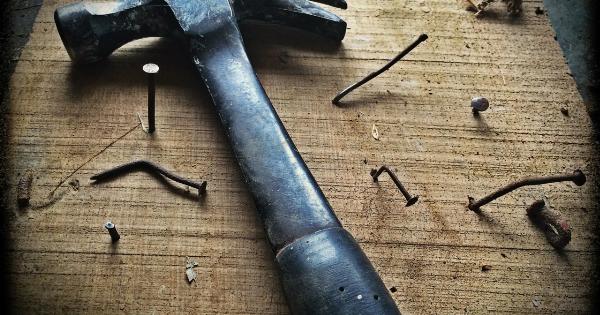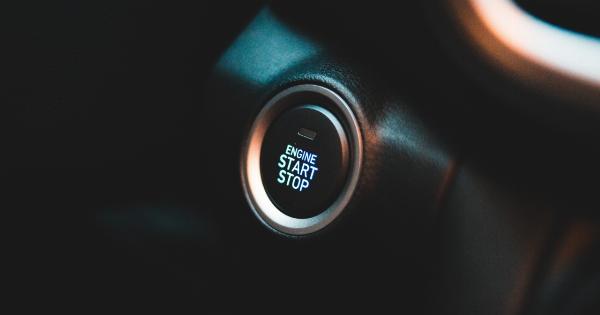Having strong and healthy nails is essential for many individuals. Our nails not only protect our fingertips but also contribute to our overall appearance.
Unfortunately, many people struggle with nail breakage, which can be frustrating and make it difficult to maintain beautiful and long nails. In this article, we will explore the main reasons why nails break and provide effective tips to prevent and treat nail breakage.
1. Brittle Nails
Brittle nails are more prone to breakage compared to healthy and strong nails. This condition is often caused by a lack of moisture and essential nutrients in the nail bed.
Additionally, chemicals present in cleaning products, nail polishes, and harsh weather conditions can also contribute to brittle nails.
2. Excessive Moisture Exposure
While lack of moisture can make nails brittle, excessive exposure to moisture can also weaken them. Continuous exposure to water, such as frequent handwashing, dishwashing, or swimming, can cause nails to become soft and prone to breakage.
3. Nail Biting
Nail biting is a common habit that can significantly weaken nails and lead to breakage. Constantly biting and chewing on nails can cause them to become weak, thin, and more prone to break easily.
4. Improper Nail Care
Improper nail care practices, such as using metal tools to clean or pry off polish, can damage the nail bed and weaken the nails. Cutting or filing nails in the wrong direction can also contribute to nail breakage.
It’s important to use gentle tools and proper techniques when caring for your nails.
5. Nutritional Deficiencies
Our nails require essential nutrients like vitamins, minerals, and proteins to stay strong and healthy. A deficiency in these nutrients can result in brittle and weak nails, making them more susceptible to breakage.
Consuming a balanced diet rich in fruits, vegetables, lean proteins, and whole grains can help promote nail strength.
6. Underlying Health Conditions
Some underlying health conditions, such as thyroid disorders, anemia, psoriasis, and fungal infections, can negatively impact the health of your nails. These conditions can cause nails to become weak, brittle, and prone to break easily.
If you suspect an underlying health condition, it’s important to consult with a healthcare professional for proper diagnosis and treatment.
7. Overuse of Nail Enhancements
Regular use of nail enhancements, such as acrylic or gel overlays, can weaken natural nails. These enhancements require harsh chemicals and filing, leading to thinning and weakening of the nails over time.
Giving your nails a break from nail enhancements can help prevent breakage and allow them to regain their strength.
8. Hormonal Changes
Hormonal changes, particularly during menopause or pregnancy, can affect the health of your nails. Fluctuating hormone levels can cause nails to become brittle and prone to breakage.
Proper nail care and ensuring a balanced diet during these times can be beneficial.
9. Excessive Use of Harsh Nail Products
Regular use of strong nail products, such as acetone-based nail polish removers or harsh nail polishes, can strip the nails of their natural oils and moisture. This can result in dry and brittle nails that are more susceptible to breakage.
Choosing gentler nail products and moisturizing regularly can help mitigate the damage.
10. Trauma or Injury
Physical trauma or injury to the nails can cause them to break or become weak. This can include activities like slamming doors on fingers, accidentally hitting nails against hard surfaces, or even wearing tight shoes that put pressure on toenails.
Taking precautions and being mindful of potential nail injury can help prevent breakage.
In conclusion, there are various reasons why nails break, ranging from lifestyle habits to underlying health conditions.
By understanding these factors and implementing effective preventive measures, you can enhance the strength and health of your nails. Prioritize proper nail care, maintain a balanced diet, and minimize exposure to harsh chemicals and trauma to keep your nails strong, beautiful, and less prone to breakage.





























